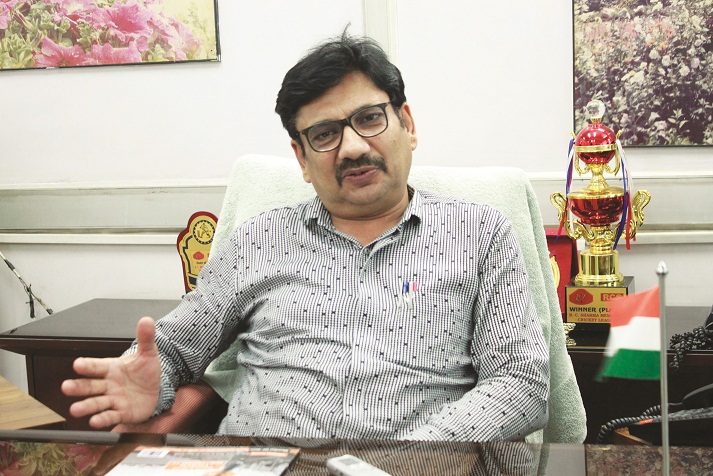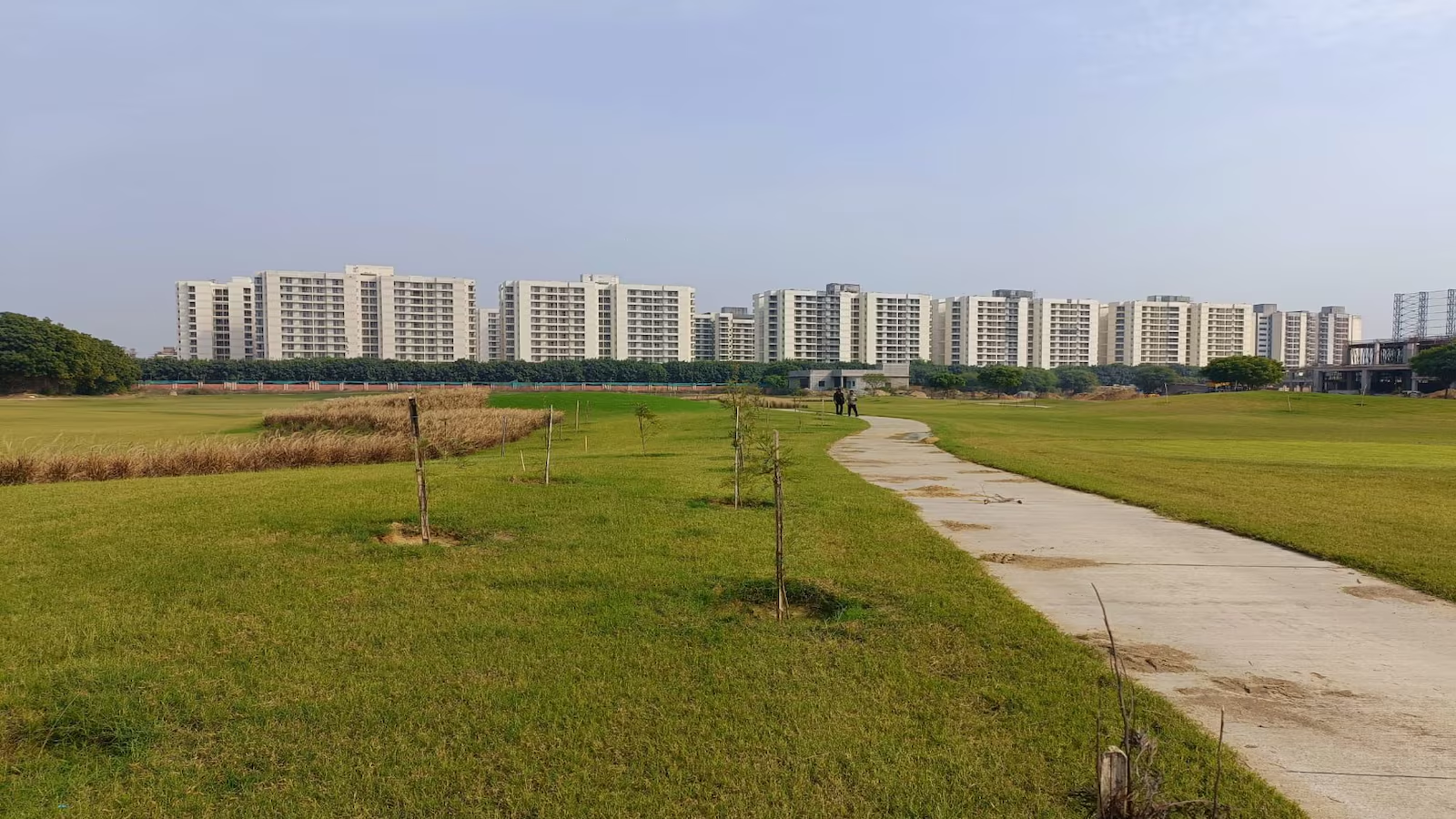Interviews
Projects must survive


Delhi RERA Director Ahuja would desist from passing orders which hit the project adversely
Having covered the experience of various stakeholders after one year of RERA in our last issue, Realty & More attempted to explore the other side of the spectrum this month. In this regard, R&M Editor Palash Roy met Vivin Ahuja, Director, RERA, NCT of Delhi, to know what kind of cases the authority has been handling, what has been its approach and how much has been its success rate. In a relaxed conversation, Ahuja reeled out the exact number of complaints Delhi RERA has received so far, the nature of these complaints and how the authority proposes to handle fresh issues. A multi-talented officer of the DDA cadre, who holds degree across streams like B Tech, LLB, Chartered Accountancy, Masters in Information Technology and a PG Diploma in Disaster Management, Ahuja was clear in his thinking that that the ultimate objective of RERA should be that real estate projects must survive. “It is not the promoter or the customer; it is the real estate sector which has to survive”, he emphasised, adding that “we don’t want to see that projects should fail”. An accomplished bureaucrat with a well-defined vision, Ahuja had lot of other positives to share in this candid interview.
Here follows the text of the interview:
Palash Roy: It has been a year since RERA was implemented. Can you tell us the nature of complaints you have been receiving?
Vivin Ahuja: We can divide the complaints broadly into three categories. First, there are complaints where the builder is not offering, or delaying, possession; second there are complaints regarding post-possession issues and lastly there are those related to properties not situated in the NCR Delhi. So, these are the three kinds of cases we are dealing with.
Those projects which do not fall in the geographical boundary of NCT of Delhi fall under the jurisdiction of respective states’ RERA. In such cases, we simply advise the complainers to approach the appropriate RERA because it is that RERA which will register those projects. We have no power to register projects which do not fall in Delhi and we cannot take action in such cases.
PR: So you are saying you mostly get complaints for delayed construction?
VA: There are very few such complaints, we received around 25 to 27 in the last one year, and we have disposed of 70 per cent of these with a direction to the developer to hand over the possession within 45 days or maximum two to three months. Where we see the developer is not in a position to hand over, the regulatory authority has passed an order for refund of money to the customer along with the interest. And I must tell you, and my caution here, is that RERA has been implemented prospectively not retrospectively. The Bombay High Court has already decided this. It has upheld the provisions of RERA and also clarified that Section-18 is applicable prospectively not retrospectively.
PR: But in respect to the projects which have been partially delivered, say few towers have been completed and handed over and others are still under construction or possession has not being given, will such towers come under the purview of RERA or not?
VA: Well, where the completion certificate has not been received by the cut-off date of May 31, 2017, RERA is applicable. There are broadly three categories of projects: First are the projects which have been completed prior to May 31, 2017. They do not require any registration under the Act. Then, there are projects which are on-going and have not got the completion certificate prior to cut-off date. They require compulsory registration and they need to submit additional information as mentioned in Rule 4 of the Rules of NCT RERA. Lastly, there are projects which started after the cut-off date and it is needless to say that these will be required to register prior to booking or advertising.
PR: Coming to the exit clause. If 10 per cent of the buyers decide to exit a project, the developer has to pay refund to them. Won’t it be difficult for him to complete the project then? Don’t you think the Act needs some amendments?
VA: I would like to read a line from the Madhya Pradesh High Court, which says that the Act provides a very fine balance between the promoter and the buyer. It protects the interests of both, the buyer and the builder. If a builder is asked to refund the entire money, he might not be left with enough funds to complete the project. So, it will be unfair to get into this kind of situation. Ultimately, what should be the objective is that real estate projects must survive. It is not the promoter or the customer; it is the real estate sector which has to survive. So, looking at that angle and it is an eagle’s eye from top view that we don’t want to see that projects should fail.
See what has happened in Jaypee case. The Supreme Court has worked in the direction that this project should get completed; that is the apex court’s idea behind the orders issued so far in this case. So, drawing an analogy from that decision or orders, I would say that yes, if real estate projects are allowed to survive, we ensure that it is completed. Then we should not stop anything or pass any order which will adversely affect the project.
- We have no power to register projects which do not fall in Delhi and we cannot take action in such cases.
- Where the developer is not in a position to hand over, the authority has passed an order for refund of money to the customer along with the interest.
- If a builder is asked to refund the entire money, he might not be left with enough funds to complete the project. So, it will be unfair to get into this kind of situation.
- If real estate projects are allowed to survive, we ensure that it is completed. Then we should not stop anything or pass any order which will adversely affect the project.
- The rules made by the Government of Delhi are totally consistent with the Central Act. In other states, you will find that there is a slight dilution.
- Our job is to lay the foundation of RERA in such a manner that all orders are transparent and fair to each party without bias.
- Each case has different facts and those facts will decide the quantum of compensation. The compensation will be decided on the merits of each case.
- When we say structural defect that means we are concerned about the safety, the safety of the buyers…workmanship means anything which would adversely affect the structural aspect in due course.
- While performing the duties as RERA, there is no bias and so there’s no conflict of interest (with DDA).
PR: It is broadly agreed that the Act requires some fine-tuning. It is learnt some states are in the process of suggesting amendments to the Union Ministry of Housing and Urban Affairs. Are you also acting on the same lines?
VA: As compared to other states, the rules made by the Government of Delhi are totally consistent with the Central Act. In other states, you will find that there is a slight dilution. Perhaps, those states are depending upon their peculiar circumstances and they would need amendment in the Act or a slight change, because their rules are also not consistent with the Act passed by the Central Government. And the Constitution says that if on a subject matter which is on the Concurrent List, if Parliament has passed an Act and the state legislature has also passed an Act, any Act passed by state legislative which is in contravention of the Central Act will be ultra vires.
But we are restricted to Delhi and our job is to lay the foundation of RERA in such a manner that all orders are transparent and fair to each party without bias so that it can be followed by other states, and our successors as well.
PR: To decide the compensation part, is RERA the authority which will decide what will be quantum?
VA: Well, yes, because Section 18 denotes the word ‘compensation’. But we have to see and balance as to what should be the reasonable compensation.
PR: What all do you take into account while deciding on the compensation?
VA: So far we have not passed any such order till date. Since the law is in the evolution stage, I will say that let some cases like that come to the Real Estate Regulating Authority and then we will see on merit what should be the amount of compensation and what should be the principles for deciding that. That’s because each case has different facts and those facts will decide the quantum of compensation. The quantum of compensation will be decided on the merits of each case.
PR: Is there sufficient clarity between structural defects and workmanship defects?
VA: If you see the intention of the lawmakers, it is very clear. The intention is that if the structure is unsafe then there is a case for liability on the promoter. That’s why we say structural defect. When we say structural defect that means we are concerned about the safety, the safety of the buyers. The second issue is workmanship. In my personal opinion, workmanship means anything which would adversely affect the structural aspect in due course. It may not be the immediate structural-affecting issue. But yes, if the workmanship is poor, if it is going to affect the age of the structure, or the stability of the structure, then it has to be considered. The only thing is being objective. While analysing the cases, I would say we should see the safety of the buyer and structural stability of the project.
PR: Lastly, the RERA, NCT of Delhi comprises officials who are also employees of DDA. The DDA is also a developer, apart from having other roles. So, isn’t there a conflict of interest here?
VA: While performing the duties as RERA, there is no bias and so there’s no conflict of interest. The only thing is we administer the law in true letter and spirit, that much I can assure you. There is no doubt about this. Once you are given to deliver justice, it means all fairness should be there, the test of fairness should be there.
-



 News3 weeks ago
News3 weeks agoKW Delhi 6 Mall Onboards New Brands
-



 News4 weeks ago
News4 weeks agoManasum Senior Living Launches IKIGAI GOA, A Senior Living Community in North Goa, in collaboration with Prescon Homes
-



 News3 weeks ago
News3 weeks agoCommercial Realty Gets Tech Savvy: Fast Construction, Enhanced Convenience
-



 News3 weeks ago
News3 weeks agoGodrej Properties Sells Rs 3k cr+ Homes of Godrej Zenith, Gurugram, within 3 days
-



 News4 weeks ago
News4 weeks agoBridging India Divide: Top 5 Tier- 2 Cities to Focus On
-



 News4 weeks ago
News4 weeks agoMultipoint Connection – A Definite Boon
-



 News3 weeks ago
News3 weeks agoRBI’s Status Quo on Key Policy Rates to Help Maintain the Real Estate Growth Momentum, Say Industry Stalwarts
-



 News1 week ago
News1 week agoOlive Announces Dhruv Kalro as Co-Founder





























